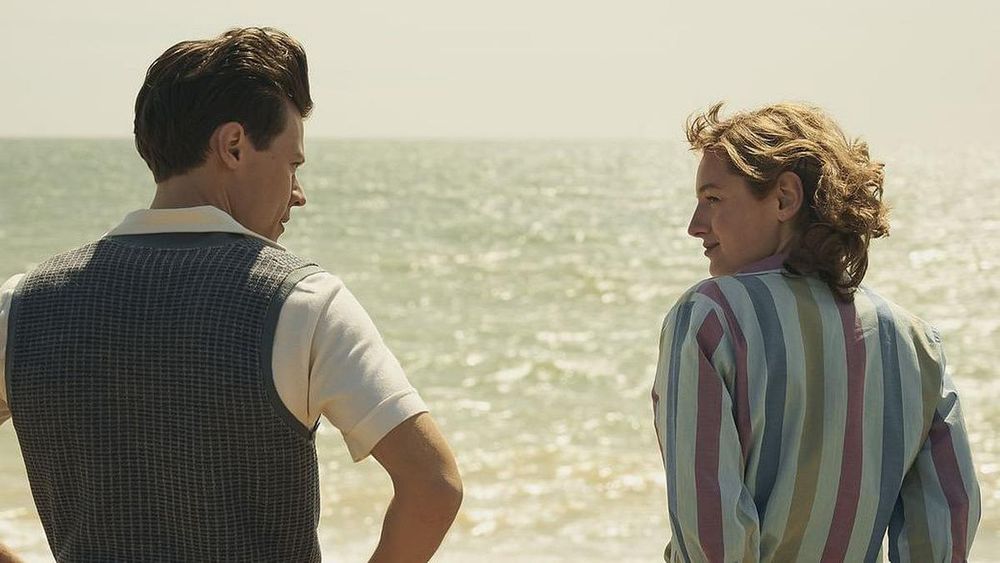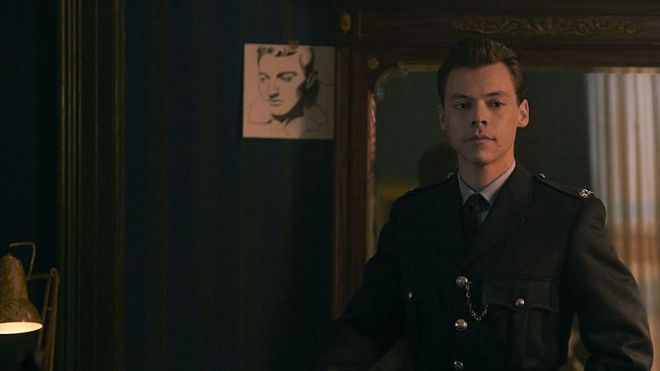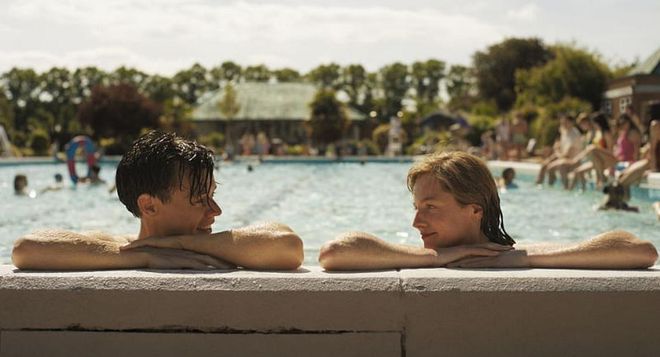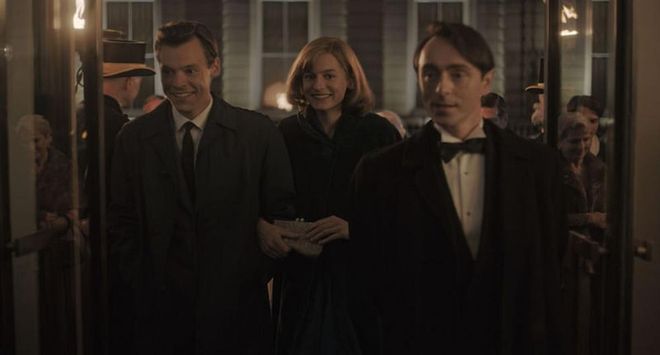Before My Policeman Was a Movie Starring Harry Styles, It Was a Devastating Novel
Author Bethan Roberts on how it feels to watch her love triangle get translated to the screen.

It has taken nearly a decade and the announcement of a film adaptation starring one of today’s biggest pop stars for Bethan Roberts’s third novel, My Policeman, to be published in the United States. Following its initial 2012 United Kingdom release, the book has now been released in “15 or more translations [and] has a whole new life that I never expected,” Roberts tells me, seated in front of an impressive wall-tall bookshelf in her Brighton home. Chronicling a trio of lovers, My Policeman is a reflection of insatiable desire and its repercussions.
Related article: Harry Styles Offers Some Thrilling Insight On The State Of Cinema
The genesis of the novel can be traced to Roberts’s youth, specifically her obsession with James Ivory’s A Room with a View and its lush depictions of vacationing in Italy. But it was E.M. Forster’s life—a distinguished gentleman, his love affair with a policeman, and the doting wife who cared for him until his last breath—that provided inspiration. “That idea took hold in me, I wanted to write about how you get to that point,” the author shares. A reimagining of this endurance of love resulted in My Policeman, which follows a dashing closeted man of the force, his tolerant schoolteacher wife, and a slightly older museum curator who becomes his secret lover.
Charting a tug-of-war between wife and lover, My Policeman’s timeline ricochets between Marion’s 1999 contemplation of her unsatisfying marriage and Patrick’s clandestine 1957 diary entries of a surreptitious same-sex affair, stifled by the illicit nature of gay relations in ’50s Britain. Roberts chalks up the avalanche of attention for her book to one man: Harry Styles, who was cast to play policeman Tom Burgess, the titular character for whom unfulfilled Marion (a poised Emma Corrin) and besotted Patrick (the remarkable David Dawson) both ache. A self-described “middle-aged bookish type,” Roberts knew the star’s name, but it took a Google search for her to realize the scale Styles would bring to the project.

Photo: Parisa Taghizadeh
The seeds for this adaptation were sown around eight years ago when Robbie Rogers, the second professional male soccer player to come out in Britain, reached out to Roberts, enquiring about the options to turn her novel into a film. “I could just see he really loved the book, and it meant a lot to him personally so it felt like, ‘Okay, you’re going to protect it,’” Roberts says. Rogers’s partner, film and TV producer Greg Berlanti, came aboard the project, and a couple years later, so did director Michael Grandage.
Related article: What We Know Of Olivia Wilde And Harry Styles’s Relationship So Far
Tom is described as blond and strikingly broad, two characteristics that don’t fit Harry Styles, but the physical difference is remedied by their shared spirit as handsome cyphers. “Tom is this enigma, and Marion and Patrick make him up as their fantasy figure,” Roberts explains. “Harry Styles fits that completely.” In the adaptation from page to screen, there have been additional leniencies. In both the book and Roberts’s mind, Tom teaches Marion to swim in the Brighton sea, but due to freezing temperatures, the film transports the intimate moment to a public pool. “For me, that scene will always be in the sea. It’s important it’s in that place where you feel out of control.” Though she was surprised by the location change, Roberts concludes the scene still works, adding, “You can’t make Harry and Emma freeze to death, it’s not worth it!”

Photo: Amazon Prime
Harry Styles Emma Corrin
Roberts beautifully captures the ache of desire in both Marion’s domesticated existence and Patrick’s culturally educated affinities. Wife and lover are deeply connected by a shared, unspoken love. Roberts adds, “Patrick is able to express it to himself, and Marion is really blind to what that means for him.” Marion’s deeply restricted sexual hankering is conveyed in a manner reminiscent of queer pining. Roberts shares she was not privy to “models of fiction in which heterosexual women were able to express sexual desire [while growing up]. There were, however, novels by gay men that did that.” The author suggests this is what made Patrick’s yearning—as dangerous as it might be in a context where the price of romantic bliss is a prison sentence—easier to write.
Related article: Florence Pugh Says ‘Don’t Worry Darling’ Is More Than Just Her Sex Scenes with Harry Styles
The silencing of queer existence is the antagonist in My Policeman. While the U.S. faced the “lavender scare” in the ’50s, across the pond in Britain, the home secretary promised to rid England of the homosexual “plague,” leading to a widespread police clampdown and the arrests of thousands of gay men. “I wondered if people had forgotten this a bit, how difficult this was and how easily it could be that way again,” Roberts says of the history that underpins My Policeman.

Photo: Amazon Prime
Harry Styles
During the film’s press tour, Styles shared he finds the most devastating aspect of My Policeman to be the exploration of “wasted time,” an uncontrollable force that can hold opportunity hostage. “He said it well,” Roberts says of Styles’s sentiment. “Writing’s always about mining the past in some way; there’s always that sense of nostalgia, but also sorrow and longing and loss.” That experience of digging deep into one’s self, honoring regret and melancholy, carries into the novel’s final pages and the film’s credits with a heart-wrenchingly bittersweet final chord of emotional closure.
This article originally appeared in Harper's BAZAAR US.